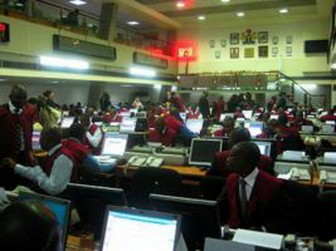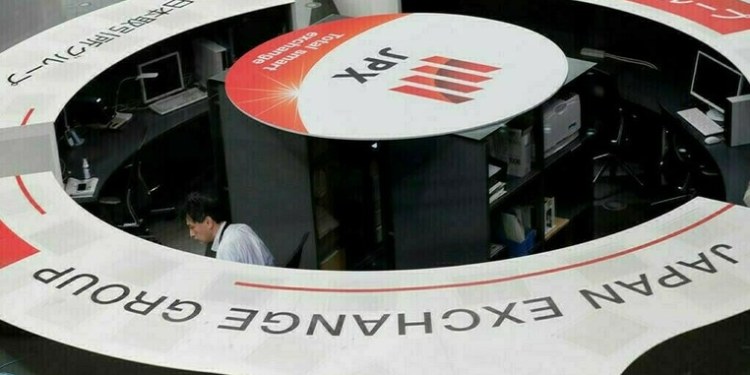 Tokyo stocks slipped 0.46 percent by the break on Tuesday as investors focused on the final chapter of a down-to-the-wire US presidential election.
Tokyo stocks slipped 0.46 percent by the break on Tuesday as investors focused on the final chapter of a down-to-the-wire US presidential election.
The benchmark Nikkei 225 index at the Tokyo Stock Exchange was down 41.31 points at 8,966.13, while the broader Topix index of all first-section issues lost 0.54 percent, or 4.06 points, to 743.89.
Markets were jittery ahead of the closely contested US presidential election between President Barack Obama and Republican challenger Mitt Romney, with the safe-haven yen gaining ground on the euro and dollar in morning currency trade.
“Players remain on edge as the outcome is simply too close to call,” Hiroichi Nishi, general manager of equities at SMBC Nikko Securities, told Dow Jones Newswires.
Yoshihiro Okumura, general manager at Chibagin Asset Management, said: “It’s not really a matter of who wins, but in finally achieving closure to a very long-running event.
“Whichever candidate wins, the market is hoping for some measure of continuation of current easy monetary policy.”
The US Federal Reserve has launched a monthly bond-buying programme aimed at stoking the world’s biggest economy.
Markets were also watching a once-in-a-decade leadership shuffle in China and the ongoing saga over a bailout deal for Greece, while downbeat US service sector data hurt sentiment.
In Tokyo trade, Toyota Motor rose 1.09 percent to 3,245 yen after upping its full-year profit forecast despite saying it expected to sell fewer cars owing to weakness in Europe and slumping sales in China tied to a Sino-Japanese territorial row.
Embattled electronics maker Sharp was down 1.29 percent at 152 yen after Standard & Poor’s cut its already junk-rated credit by three notches late Monday.
Rival Panasonic, which said last week it would lose more than $9.0 billion in the year to March owing to a massive restructuring, also fell, giving up 1.54 percent to 382 yen.
Suzuki Motor inched 0.10 percent higher to 1,837 yen after saying it would shutter its money-losing US car business and place the division in bankruptcy protection.
Source: AFP





























